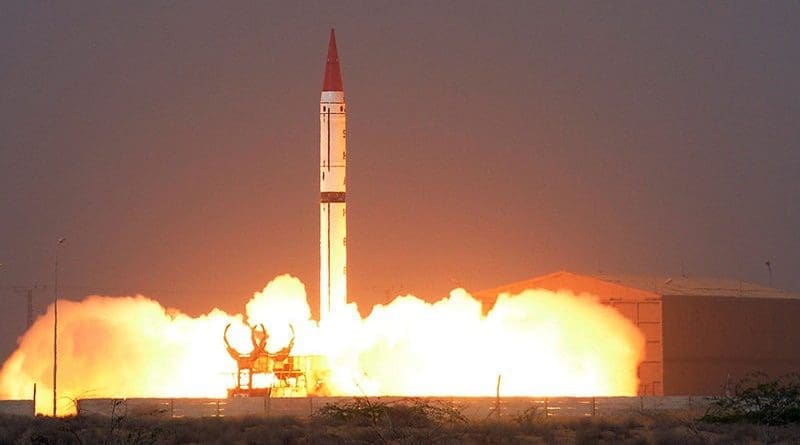
Yom-E-Takbeer: Pakistan’s Nuclear Milestone – OpEd
On May 28, Pakistan marks a pivotal moment in its history, commemorating a milestone that reverberates across the nation’s strategic landscape. This significant occasion, often referred to as “The Day of Greatness,” signifies Pakistan’s entry into the nuclear club. Beyond a mere commemoration, Yom-e-Takbeer encapsulates Pakistan’s strategic evolution, scientific prowess, and diplomatic resilience. This article explores the multifaceted dimensions of this milestone, delving into its historical context, strategic implications, and enduring legacy.
The genesis of this historic event lies in the geopolitical tensions of the late 20th century, particularly the nuclear rivalry between Pakistan and India. In May 1998, India’s series of nuclear tests sent shockwaves across the region, compelling Pakistan to respond decisively. Faced with the daunting prospect of its neighbor’s nuclear capabilities, Pakistan’s leadership, under Prime Minister Nawaz Sharif, made the fateful decision to conduct its own nuclear tests, thereby altering the strategic calculus of South Asia.
The aftermath of Pakistan’s nuclear tests on May 28 marked a paradigm shift in the regional balance of power. Pakistan’s acquisition of nuclear weapons served as a potent deterrent against external aggression, bolstering the nation’s security and sovereignty. The successful conduct of these tests underscored Pakistan’s resolve to safeguard its national interests and defend itself against any potential threats.
Furthermore, this milestone highlighted the importance of nuclear deterrence in preventing conflict escalation and maintaining regional stability. The presence of credible nuclear capabilities has acted as a crucial factor in averting major conflicts between Pakistan and India, emphasizing the vital role of nuclear weapons in strategic calculations.
Diplomatic Ramifications
In the wake of Pakistan’s nuclear tests, the international community scrambled to respond to the shifting dynamics in South Asia. Despite facing international condemnation and sanctions, Pakistan remained steadfast in its commitment to defending its sovereignty and safeguarding its strategic interests. The successful conduct of these tests bolstered Pakistan’s diplomatic standing, enhancing its credibility as a responsible nuclear state.
Moreover, this milestone underscored the imperative of nuclear non-proliferation and arms control efforts on the global stage. Pakistan has consistently advocated for a comprehensive and non-discriminatory approach to nuclear disarmament, emphasizing the need for equitable security arrangements that address the legitimate security concerns of all states.
This historic event holds a special place in the collective consciousness of Pakistanis, serving as a symbol of national pride, resilience, and scientific achievement. The successful conduct of nuclear tests galvanized the nation, fostering a sense of unity and solidarity in the face of external pressures. It instilled confidence in Pakistan’s capabilities as a sovereign and independent nation, capable of overcoming formidable challenges.
This milestone inspired future generations of Pakistanis to pursue excellence in science, technology, and defense. It ignited a spirit of innovation and ingenuity, driving Pakistan’s quest for self-reliance and technological advancement. The legacy of this event continues to resonate across generations, serving as a reminder of Pakistan’s capacity to chart its own destiny and shape its future.
Yom-e-Takbeer stands as a testament to Pakistan’s strategic acumen, scientific achievements, and diplomatic resilience. It represents a defining moment in the nation’s history, signaling its emergence as a responsible nuclear state and a key player in regional and global affairs. As Pakistan commemorates this milestone each year, it reaffirms its commitment to peace, stability, and progress, while remaining vigilant in safeguarding its national interests. May the spirit of this event continue to guide Pakistan towards a future defined by peace, prosperity, and security.
File photo of Pakistan launching a Shaheen-III Missile. Photo Credit: Inter Services Public Relations (ISPR)

Sehr Rushmeen is an Islamabad based freelance researcher, with areas of research interest in Strategic Nuclear Studies and Warfare.
No comments:
Post a Comment